John Mauceri and "The Sound of Hollywood": Remastered and Reissued - PART 2
A Landmark Series of Broadway and Film Music Recordings Gets The Deluxe Reissue Treatment It Deserves from Eloquence Classics
The Sound of Hollywood - 16 CDs
John Mauceri (conductor) with the Hollywood Bowl Orchestra and the London Symphony Orchestra (My Fair Lady)
Various soloists and vocalists
Various producers, engineers etc.
Originally Released by Philips; this release by Decca/Eloquence - www.eloquenceclassics.com
Executive Producer for Eloquence: Cyrus Meher-Homji
Music: 10
Sound: 8 (My Fair Lady: 6)
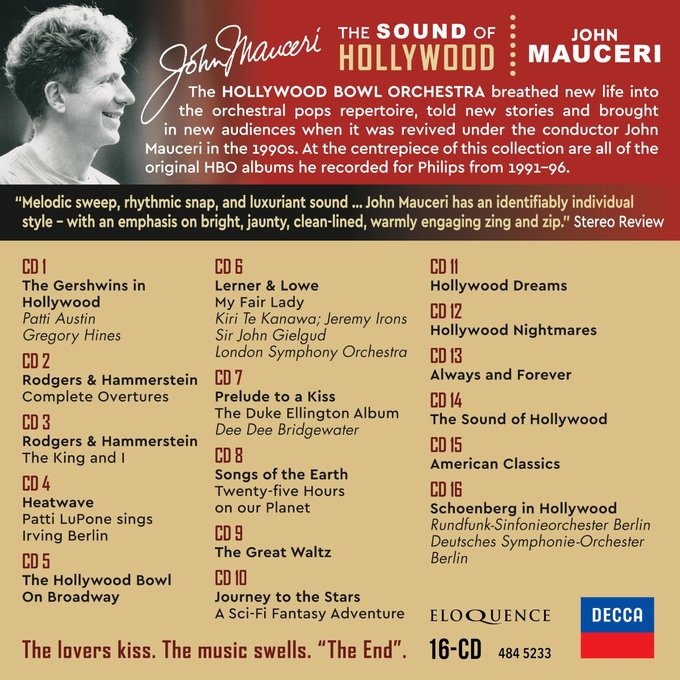
The CDs in this box largely fall into two groups. The first features selections and arrangements for full orchestra from the great musicals, encompassing George Gershwin, Kurt Weill, Richard Rodgers, Irving Berlin et al, with appearances by outstanding singers well-versed in this repertoire, including Patti Austin, Gregory Hines, Patti Lupone. This group also includes two re-recordings of more-or-less complete shows - My Fair Lady and The King and I - with casts that include Julie Andrews and Kiri Te Kanawa, plus a homage to Duke Ellington with Dee Dee Bridgewater adding vocals.
The second group of CDs encompasses film music in themed programs (with some classical thrown in), and these CDs run the gamut from familiar favorites to some real obscurities given a very welcome outing. You can tell tremendous thought and care has been put into the programming, and it means each disc offers an hour or more of thoroughly diverting listening that never wants for variety. All CDs are presented as “Original Jackets”, with track listings on the reverse.
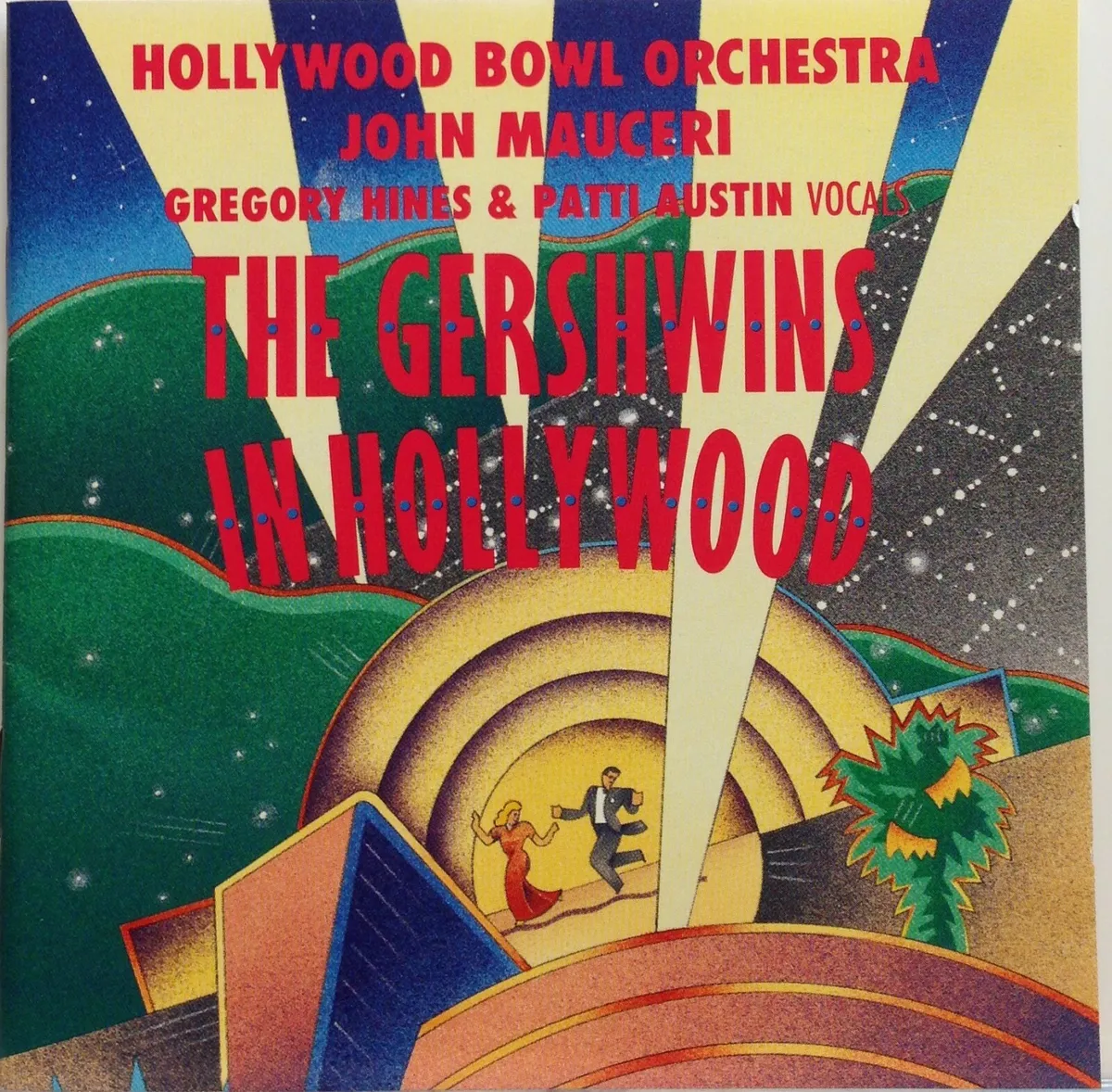
Things get off to a spectacular start with “The Gershwins in Hollywood”, a rip-roaring selection of music that sounds as fresh today as when it was first heard on the Great White Way and on the Silver Screen. After a suitably vivacious rendering of Gershwin in Hollywood (beautifully orchestrated by the brilliant Robert Russell Bennett, who shows up repeatedly throughout this box), the pianist Wayne Marshall contributes a scintillating performance of the rarely heard New York Rhapsody (Marshall’s rendering of Rhapsody in Blue on a 1995 Virgin Classics release of the Gershwin classical hits is one of the best out there). We then launch into a kaleidoscope of Gershwin treasures, including some rarities along with the hits, with Patti Austin and Gregory Hines doing stellar duty on vocals. They have this music in their blood and it shows. Throughout the orchestra barnstorms its way through one number after another to the manner born, evoking memories of the old MGM band at its zenith. Shout out to the double bassist who lets rip during one of my faves, Slap that Bass.
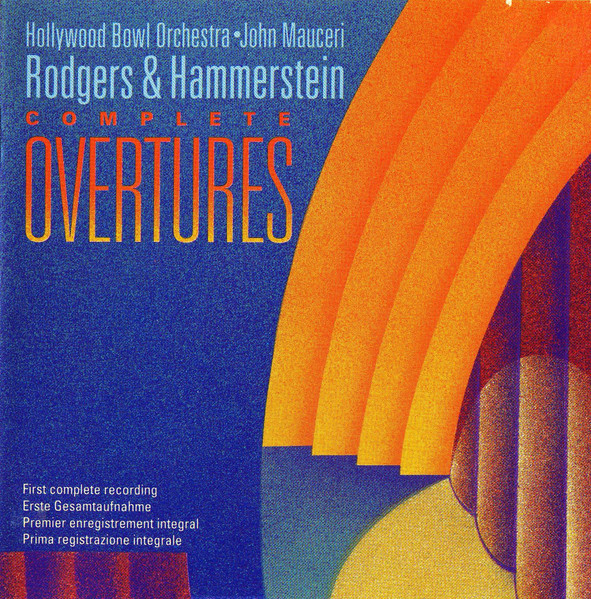
Disc 2 continues the magic with what was a real rarity when it was first issued in 1992: a program of Overtures from all the musicals composed by Richard Rodgers, penned with Oscar Hammerstein. One great tune after another, many of which will be unfamiliar but no less notable for that, all in beautiful arrangements, are performed with that essential pizzazz this music needs to come alive in your listening-room.
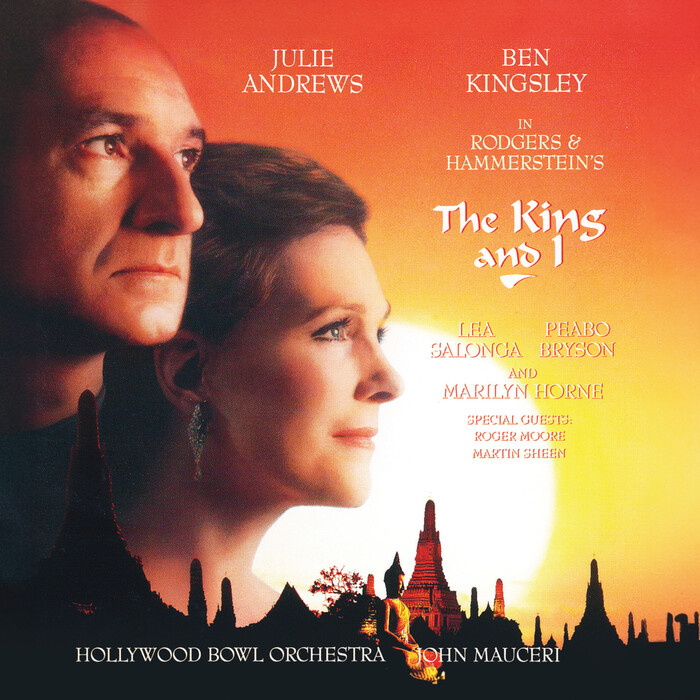
Disc 3 brings us a re-recording of The King and I featuring Julie Andrews. What a treat to hear her in this role that she never sang onstage. Ben Kingsley channels his inner Yul Brynner to perfection. The young lovers - Peabo Bryson and Lea Salonga - are full of youth’s ardent passion, and another legend, Marilyn Horne, shows up as the formidable Lady Thiang.
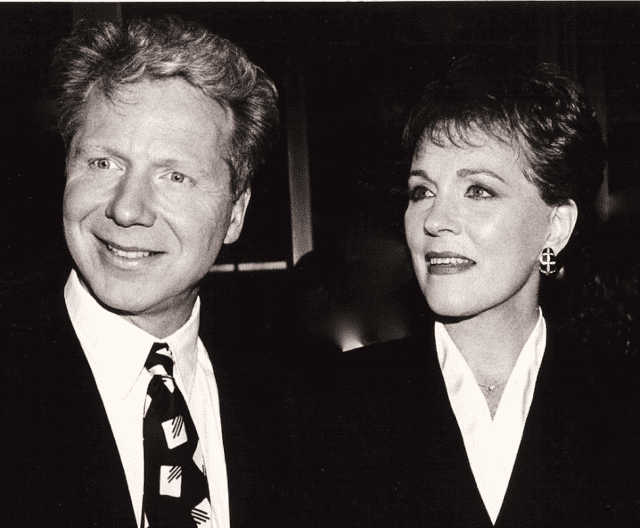 John Mauceri and Julie Andrews
John Mauceri and Julie Andrews
But the reason to revel in this recording is Julie Andrews giving a masterclass in musical theatre performance, allied to the orchestra and Mauceri bringing out all the exotic colors of this technicolor score in its expanded movie version by Alfred Newman. (Newman, Head of the Music Department at 20th Century Fox for 20 years, won an Oscar for his work on the picture. He was also head of a family dynasty of musicians, which included his brother Lionel, sons David and Thomas, and nephew Randy). Just wait until the exotic percussion, including gamelans, makes its presence felt. It’s a glorious sound. Altogether, listening again to this release after many years’ absence, I was struck by what a remarkable score it is, full of one show-stopping tune after another. Pure listening pleasure.
Incidentally here is a backstage film about the making of this recording:
The huge success of this re-recording of The King and I, however, only throws into sharper relief the problems with the other full score re-recording in this box, of My Fair Lady.
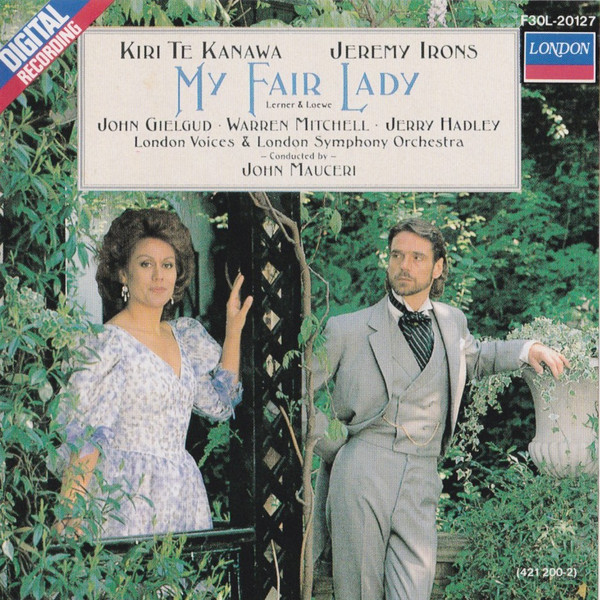
This project, from 1987, pre-dates the revival of the Hollywood Bowl Orchestra. The sessions - with the renowned London Symphony Orchestra - took place in that city’s Henry Wood Hall, a fine-sounding venue that features in many classical recordings. Unfortunately this is an early digital recording and it shows - the sound is bright, shallow, with no atmosphere at all. The problem is compounded by the solo voices being audibly recorded in a booth, in a very constricted, boxy acoustic that bears no relation to the aural space occupied by the orchestra. I am pretty good at making allowances for poor sound, especially if the performances are compelling, but I really had a hard time listening to this.
Things get worse with the casting. Liza Doolittle, the cockney flower-girl who is turned into “aristocracy” by having her lower-class drawl eradicated by speech expert Henry Higgins, is sung by Kiri Te Kanawa, the exquisite New Zealand soprano who wowed opera audiences around the world over a long and celebrated career. She had recently sung Maria in Leonard Bernstein’s recording (his first) of West Side Story for Deutsche Grammophon. Bernstein always felt somewhat burdened by the youthful success of his musical, feeling that the long shadow it cast made it harder for people to take him seriously as a classical composer (thank goodness that has changed). Casting opera singers Te Kanawa and the fine tenor José Carreras as the star-crossed lovers was, in his mind, a way to “legitimize” West Side Story as a “serious” work.
Well of course these days no-one in their right mind would ever consider West Side Story to be anything less than a masterpiece of the first order, to be taken very seriously indeed, no matter that it is “just a musical”. Unfortunately, for all the pluses in the DG recording, many (myself included) simply cannot get past the fact that the leads, who are supposed to be teenagers, are being sung by opera stars in their late 30s. The operatic voice is simply not a good fit.
This is why Te Kanawa is also all wrong in My Fair Lady. You simply never believe she’s a young Cockney flower-girl, despite all the fancy dialect training she’s received, and her underplaying of her intrinsically operatic tone: the voice is simply too “classical”, too “operatic”. Compare with Julie Andrews in The King and I, who sported no less formidable a classically trained vocal instrument, albeit of a very different character. The manner of singing is so much closer to conversation than one finds with classical singers, let alone opera stars, and that’s what musical theatre - even the more classically inclined musical theatre - requires.
Jeremy Irons gives Henry Higgins a noble try, but he is no Rex Harrison. The recording is expertly conducted, enthusiastically sung and played, but it misses in too many ways to be recommended. I gave up half-way through - it was just too painful to listen to. No, if you want to listen to My Fair Lady, stick with either the original Broadway cast album (with Julie Andrews) or the film version, which is conducted with real vim and vigor by the young André Previn.
Of the various excellent film music albums in this box, a real stand-out is the album titled Journey to the Stars - A Sci-Fi Fantasy Adventure. This is a brilliantly curated collection of the familiar and unfamiliar. So you’ve got Star Wars and Star Trek and the Fanfare from Also Sprach Zarathustra which kicks off 2001: A Space Odyssey, but you’ve also got Ligeti’s modernistic Atmosphères from that film, plus Alex North’s Fanfare from his own original score for the film that was rejected by director Stanley Kubrick. The Love Theme from John Corigliano’s again modernistic score for Ken Russell’s demented Altered States rubs shoulders with Franz Waxman’s classic Bride of Frankenstein, given a spectacular outing by Mauceri & co. They also dig into Arthur Bliss’s increasingly, and rightly, well-known Things to Come with relish. (Charles Gerhardt also recorded parts of this score for RCA). Extracts from the purely electronic (and groundbreaking) soundtrack score for Forbidden Planet, plus electronic sounds from the 1959 outer space opera Aniara, add spice to the mix.
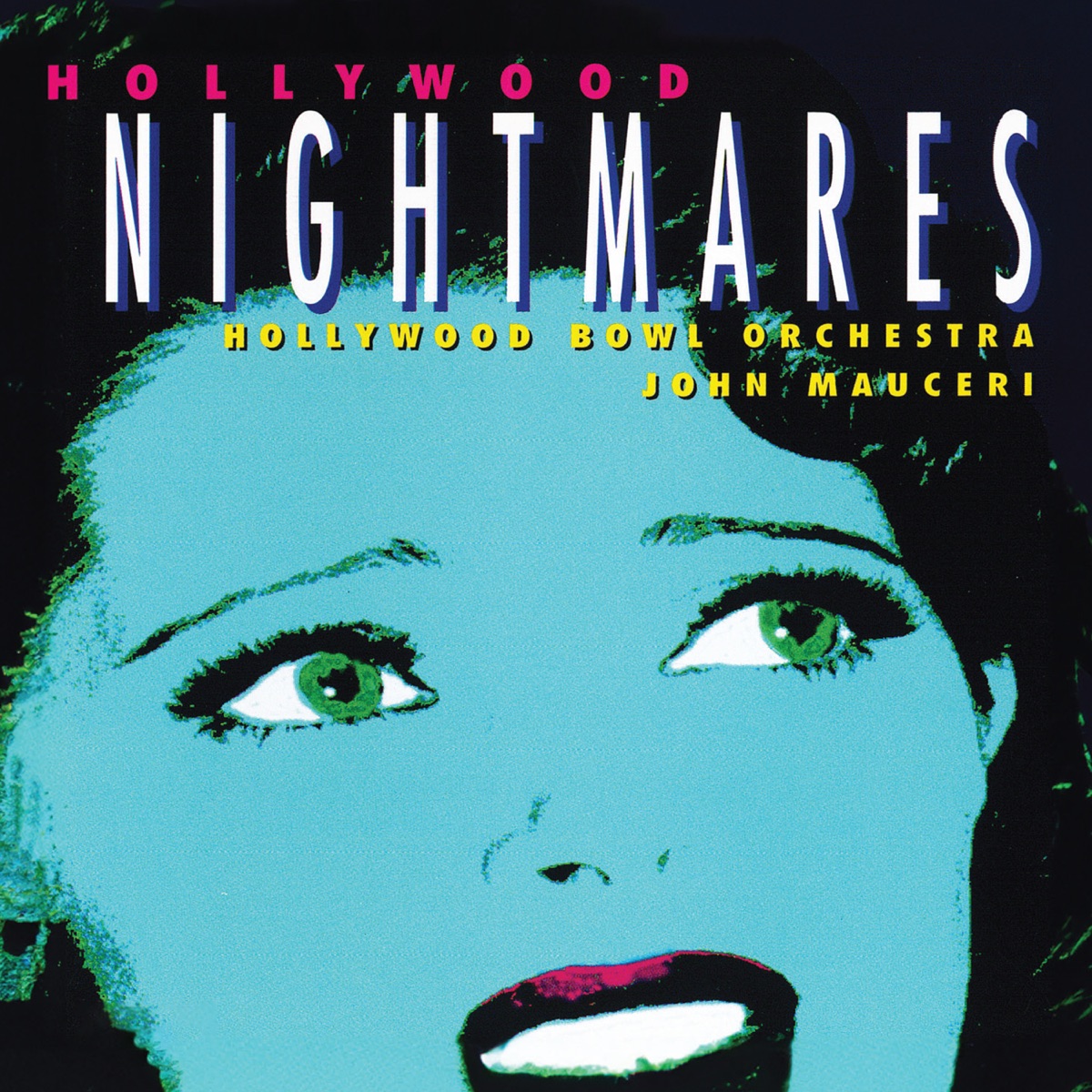
The albums Hollywood Dreams and Hollywood Nightmares again mix the familiar with the unfamiliar to great effect. All the Golden Age of Hollywood composers are represented, as well as modern masters. I will mention in particular Max Steiner’s vivid King Kong, Jerry Goldsmith’s suitably apocalyptic The Omen, John Williams’s underrated Dracula (at the time one of his relatively unknown scores) and the very colorful Dr. Jekyll and Mr. Hyde by Franz Waxman. Performance-wise the only mis-step is Mauceri’s handling of the Scene d’Amour from Herrmann’s Vertigo. Like Esa-Pekka Salonen in his mostly exemplary album of Herrmann’s film music with the Los Angeles Philharmonic, Mauceri cannot resist pulling the music about with uncalled for tempo changes and pauses, so it loses all its forward impetus. No, if you want to hear this greatest of all of Herrmann’s film scores done properly, stick with Herrmann himself on Decca/London Phase 4, or Joel McNeely in his essential re-recording of the whole score on Varèse Sarabande.
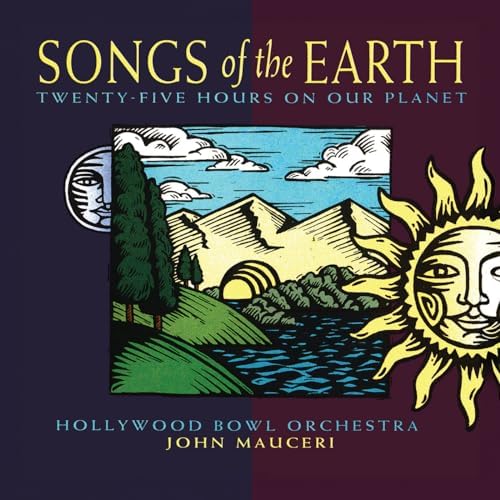
Mauceri throws in quite a bit of classical music throughout, especially on an unusual “concept” album titled Songs of the Earth - 25 Hours on Our Planet. Familiar and less familiar (Schoenberg’s Gurrelieder anyone?) classical nuggets are imaginatively juxtaposed and respectably dispatched, but the real gem here is Franz Waxman’s Dusk, featuring electric violin.
In fact, one of the greatest pleasures to be gained throughout this box is from the thoughtfully chosen eclectic programming that was a hallmark of Mauceri’s approach, so that you hear familiar (and unfamiliar) works in unusual juxtapositions. It lends freshness to old warhorses, and eradicates any sense of division between “serious” and “light” music.
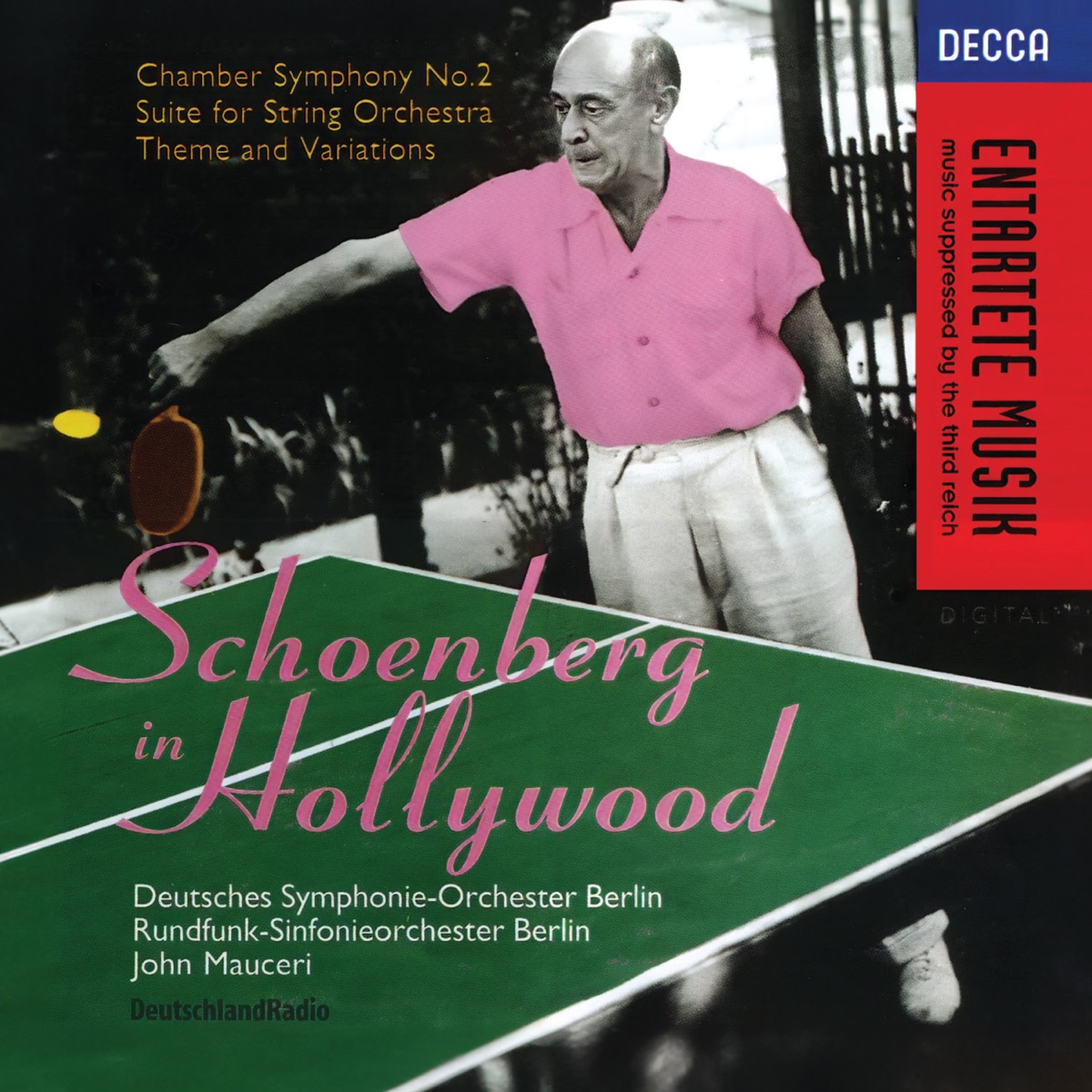
One of the most essential discs in the box is Schoenberg in Hollywood. That the eminence grise of atonality and serialism should end up living in Los Angeles sounds like some kind of cosmic joke; that he should try (and fail) to break into movie scoring is simply odd beyond belief, a testament to the fact that everyone - even grizzled avant-gardists - wanted to be in pictures. (The opening track on the Mauceri/HBO partnership’s first album, Hollywood Dreams, is Schoenberg’s Fanfare written in 1945 for Leopold Stokowski and the original Hollywood Bowl Orchestra, and it is fully idiomatic of film music of the time, albeit with a little extra harmonic seasoning).
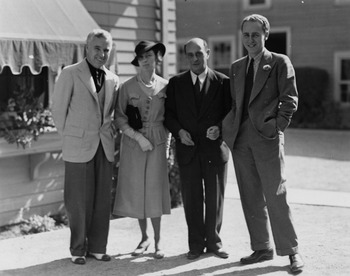 From left to right, Charlie Chaplin, Gertrud and Arnold Schoenberg, David Raksin (composer of "Laura" and a pupil of Schoenberg's) at Chaplin's studios in 1935
From left to right, Charlie Chaplin, Gertrud and Arnold Schoenberg, David Raksin (composer of "Laura" and a pupil of Schoenberg's) at Chaplin's studios in 1935
Schoenberg in Hollywood is part of an important series Decca released over the years titled Entartete Musik, featuring music banned by the Nazis, some of whose composers didn’t make it out of Germany alive. Mauceri was a moving force behind this fascinating series. Someone - maybe Eloquence - needs to gather up all these discs into a box set. In the meantime, it’s great that this Schoenberg disc gives listeners a chance to explore some less familiar repertoire. It includes the Chamber Symphony No. 2 alongside the lesser-known but lovely (and tonal) Suite for String Orchestra, and the much later Theme and Variations.
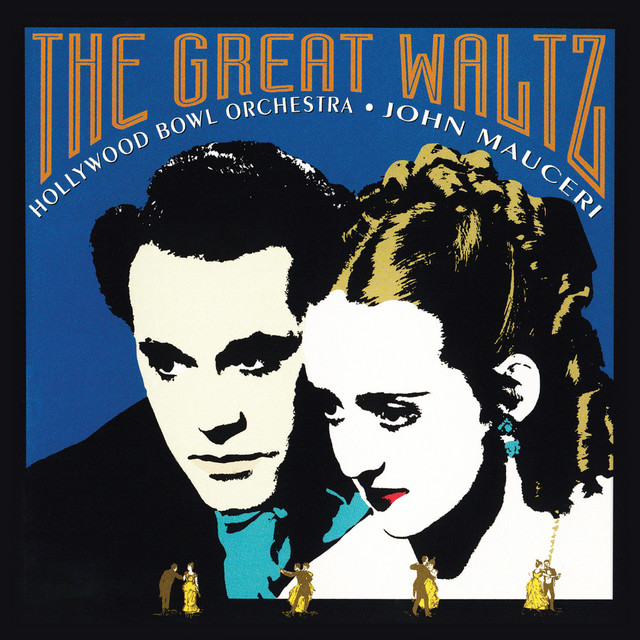
Another disc that shows Mauceri and his team’s talent for unusual but compelling programming is The Great Waltz, full of gems by the likes of J. Strauss of course (though taken from the biopic The Great Waltz, and therefore somewhat tweaked, delightfully so), plus rarities by Miklós Rózsa, Leonard Bernstein, Richard Strauss, Prokofiev (!!), Stephen Sondheim, Korngold and others. An unexpected but most welcome track is the waltz composed by Richard Rodney Bennett which accompanies the scene in Murder on the Orient Express (1974) where the grand train pulls out of the station in Istanbul - a sequence which not only drew a lot of attention when the film was first released, but which has also often been cited by film music historians over the years for the imaginative scoring. This whole CD is a great listen!
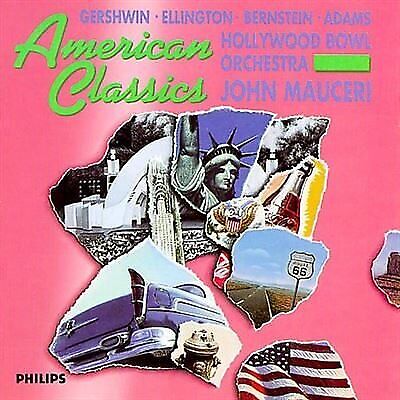
An album of American Classics features the obvious An American in Paris alongside the less obvious Duke Ellington’s Harlem and John Adams’s The Chairman Dances. This disc was probably the introduction for many to the music of John Adams, one of the outstanding composers of our time, and it gets a terrific outing here that plays up its jazzy elements. Yet again Mauceri and his orchestra display formidable chops in tackling such a wide variety of music with completely idiomatic playing.
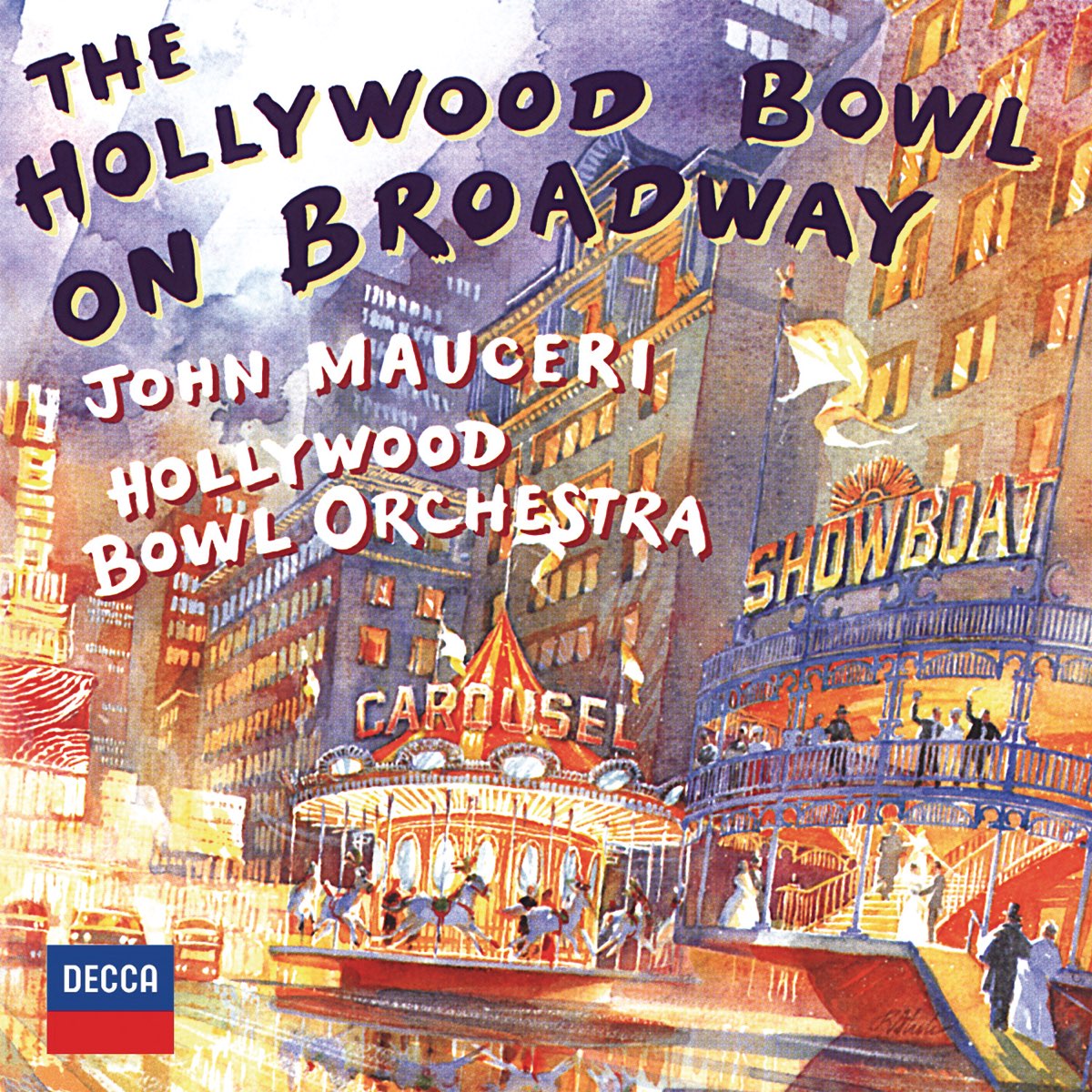
Another disc with hidden treasures is Hollywood on Broadway which features some very striking extended sequences from Carousel and Showboat, along with Slaughter on Tenth Avenue by Richard Rodgers, danced by Gene Kelly and Vera Ellen in the 1948 MGM biopic of Rodgers and Hart, Words and Music. The disc is rounded out by music by Kurt Weill and Harold Arlen and Johnny Mercer's Free and Easy: Concert Suite from Blues Opera - a work that Mauceri subsequently restored in full.
The CDs in this box all come as original jacket presentations, many sporting a range of artwork that, frankly, is a bit of a hit-and-miss affair. Still, most collectors will appreciate having the discs looking the same as when they were first released. Alas, no original notes are included, which for me is a persistent failing on all the Eloquence releases (and with most box sets these days). Surely it wouldn’t be too hard to at least include a CD-Rom or a link to a web-page with the original liner-notes, many of which were written by Mauceri himself. I really missed having more information about the specific tracks I was listening to. (If you want to read more of Mauceri’s own thoughts on this reissue and the original sessions and releases, head over to his website. There you'll find some fascinating insights, and wonderful photos).
That shortcoming aside, this is as musically rich a set of CDs as you are going to find anywhere, and it will give you hours of immense enjoyment, while also spurring you to explore further the composers and music you are less familiar with. Add to that a crop of splendid photos and the two excellent essays I mentioned earlier, and you’ve got another winner from the Eloquence team. This was a set of recordings that badly needed reissuing, and I am just glad that the right label gave them the 5-star treatment they deserved.
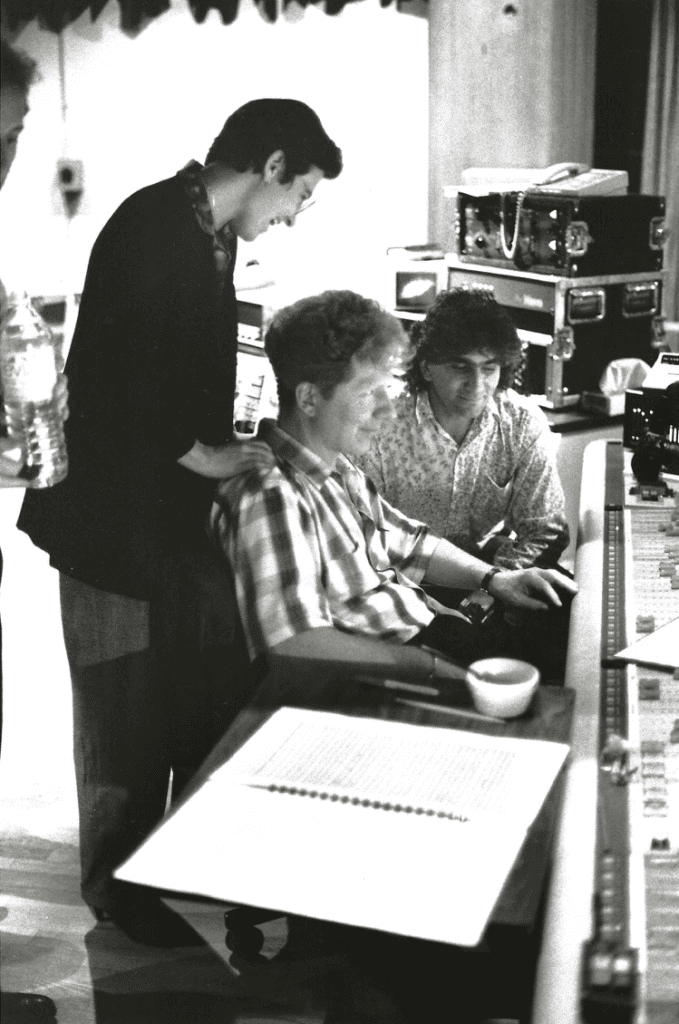 John Mauceri (c.) with Anne Parsons (l., first General Manager of the HBO) and Joel Moss (r., recording and mixing engineer) (Photo by Decca)
John Mauceri (c.) with Anne Parsons (l., first General Manager of the HBO) and Joel Moss (r., recording and mixing engineer) (Photo by Decca)
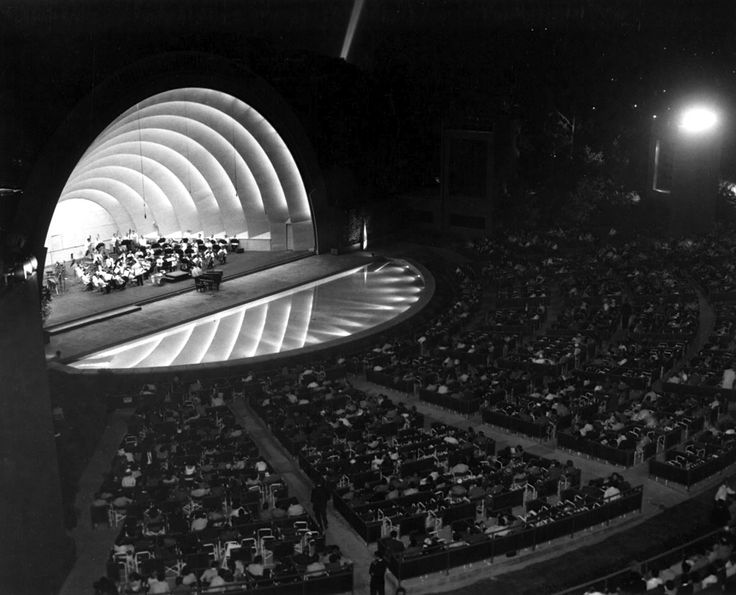 Hollywood Bowl in 1936
Hollywood Bowl in 1936


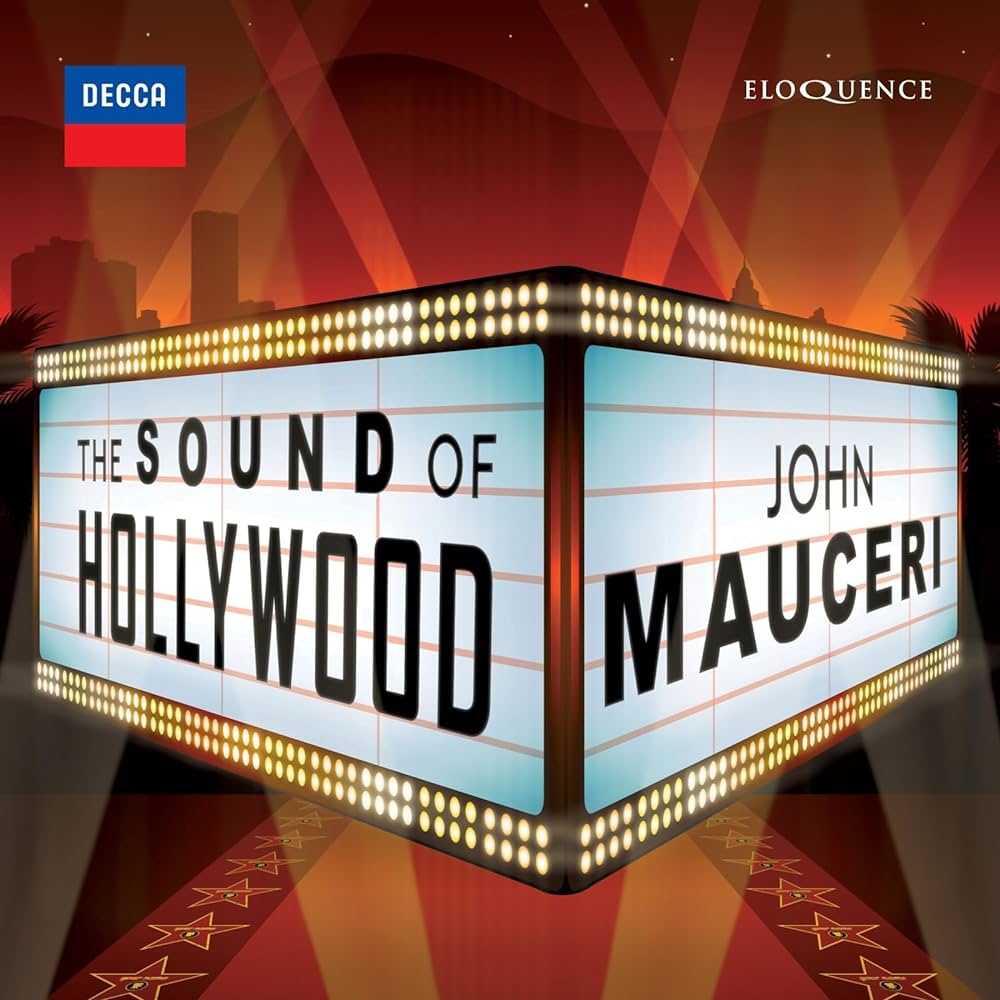





































.png)








